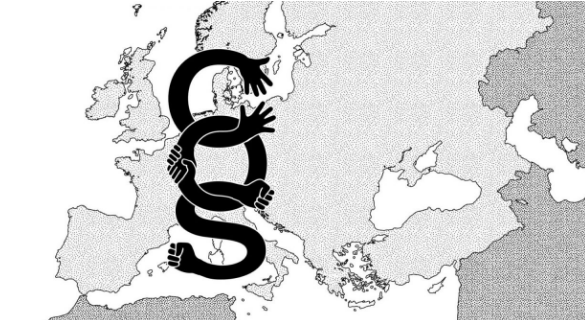Owning and Keeping Pets in Europe
Pet Tax in the EU
In the EU, dog owners are required to pay a tax that varies by municipality: in 2025, the EU pet tax could be up to €1,000 per dog per year, although the tax may be lower or non-existent.
In some countries, such as Germany, dog owners are required to pay a tax that can be as much as €1,000 depending on the breed and size of the dog.
In France, there is no pet tax, but there may be a local tax for owning a pet.
In Italy, there is also no national tax, but some municipalities may impose their own fees.
Tax rates may vary between the Benelux countries and different regions. In some municipalities, the dog tax is around €25-50 per year, but in other places it can be as much as €100 or more. Owners of all dogs are required to register their pets with their local authorities. This may be free or subject to small fees.
Pet tax is exempt for elderly people (usually aged 65 and over), disabled people using guide dogs, and farmers keeping dogs for domestic use.
Pet ownership in the EU is regulated by the Pet Ownership Act, which sets out the general principles for the treatment and protection of animals; keeping large and farm animals in the EU is subject to mandatory veterinary regulation or licensing.
Regulation of dog keeping in the EU
According to EU law, owners of dogs of all breeds are required to provide their pets with a suitable living environment. This includes
Providing shelter from the elements
Providing clean water and a nutritious diet at all times.
Prohibition on keeping a dog on a leash (cage) for more than 12 hours a day and on a chain shorter than 3 meters for more than 12 hours a day.
If the dog is not vaccinated against rabies, the fine is from 500 euros.
Depending on the country: a fine of 500-5000 euros if the dog is walked without a leash or muzzle (if the dog weighs more than 5 kg), walking in prohibited areas (if there are prohibiting signs, near medical, educational or childcare facilities) or leaving excrement.
Violating these rules may result in a fine, and in the case of organized violations – in criminal liability for at least one year.
Animals prohibited for keeping in households in the EU
Almost all types of pets are allowed in the EU, including dogs, cats, rodents, reptiles and birds. However, some types of animals are prohibited for keeping in households in Europe and are prohibited for private individuals:
Prohibited breeds: Potentially dangerous breeds such as pit bull terriers and American Staffordshire terriers are prohibited in the EU.
Prohibited animals: Some exotic animals require a special permit. Birds and animals, insects, reptiles (poisonous snakes, toads, spiders, crocodiles, some iguanas and other tropical animals), rare species, endangered species and animals protected by the World Organisation for Animal Welfare are subject to state regulation.
Pets that do not require registration in the EU
Cats: In most cases, registration of domestic cats is not required, but for better management and safety, registration is recommended. However, for large cats (raccoons, jungle cats, pumas and other predators), a special permit from the Veterinary Office is required.
Rodents: Animals such as squirrels, guinea pigs, ferrets, raccoons, weasels, hamsters and mice do not require mandatory registration in the EU.
Birds: Domestic birds such as parrots and canaries are not subject to registration. Large birds of prey and game birds are regulated: arachnids, muscoxes, amazons, cockatoos, falcons, eagles, owls, vultures, peregrine falcons, ostriches, dodos and cassauras.
Reptiles and amphibians: for example, turtles and lizards can be kept without registration, but special permits may be required for import of some exotic species – maga, gerbils, Philippine toads, cane frogs, common toads and green toads.
Rabbits and other small mammals: these animals also do not require registration.
Animals banned from being kept in the EU
The EU has a list of animals whose keeping as pets is restricted or prohibited altogether. These rules are aimed at ensuring human safety and the preservation of ecosystems, as well as protecting the animals themselves from inappropriate conditions. The rules apply mainly to wild and exotic animals.
Animal species that are prohibited or permitted to be kept in the EU include
Dangerous predators:
Dangerous predators: Large cats such as lions, tigers, leopards, jaguars.
Wolves, bears.
Large reptiles such as crocodiles and alligators.
Poisonous snakes:
Poisonous snakes (e.g. cobras, rattlesnakes).
Some spiders and scorpions.
Exotic poisonous frogs.
Exotic animals requiring special conditions:
Some primates,such as chimpanzees and macaques.
Elephants and rhinoceroses.
Large herbivores such as buffalo and elk.
Large turtle species, monitor lizards.
Animals in danger of extinction.
Species listed by CITES (Convention on International Trade in Endangered Species of Wild Fauna and Flora).
Certain non-native birds and fish:
Certain species of parrots and non-native songbirds that may harm the local ecosystem or require special care.
Large aquarium fish and marine animals, including large sharks and moray eels.
Species posing a threat to EU ecosystems:
Species that may threaten native flora and fauna if released into the wild, such as snakes, fish and amphibians.
To keep such non-native and potentially dangerous species, owners must obtain a special permit, undergo training and provide a suitable environment for the animal. If owners violate the rules, authorities can confiscate the animals and impose a fine.
See also: A painting stolen from PinchukArtCentre exhibition in Kyiv, thief given a chance to redeem himself
Confiscation of pets in the EU
Local authorities (municipalities) have the right to carry out unannounced checks on pet owners. If violations are found, measures can be taken, including confiscation of the animal for reasons such as:
Improper maintenance or cruelty to the animal
Lack of necessary vaccinations or lack of regular veterinary care.






